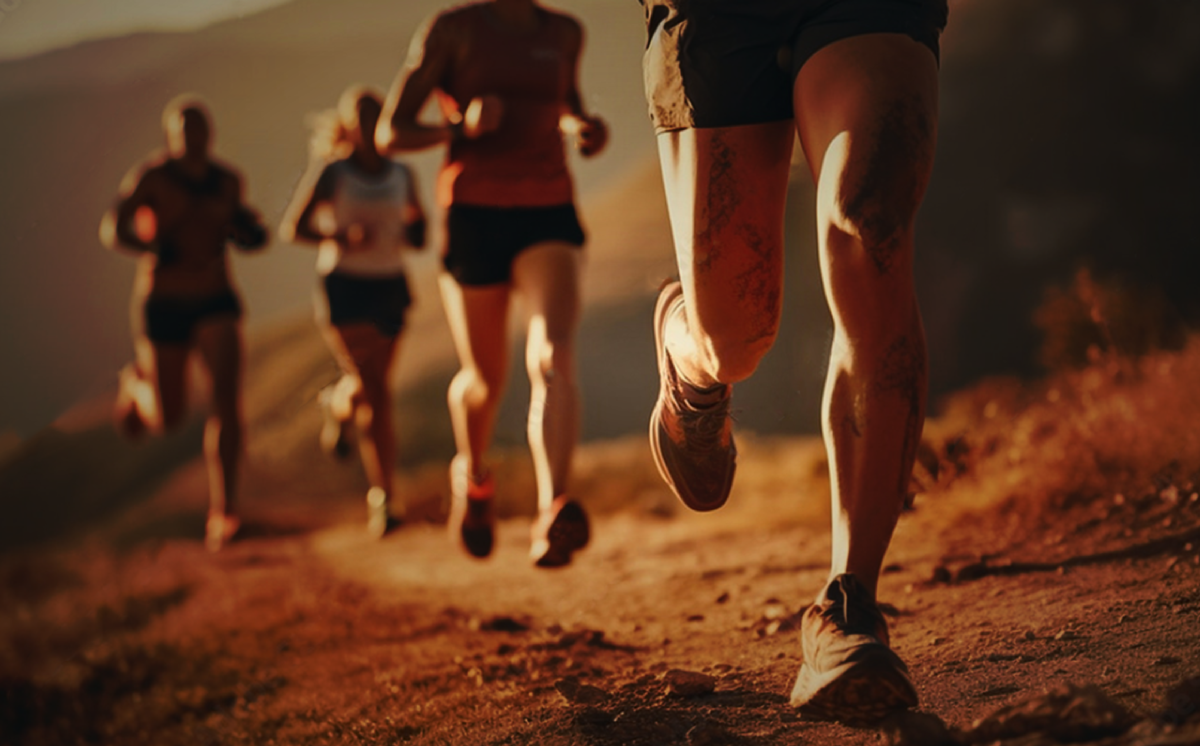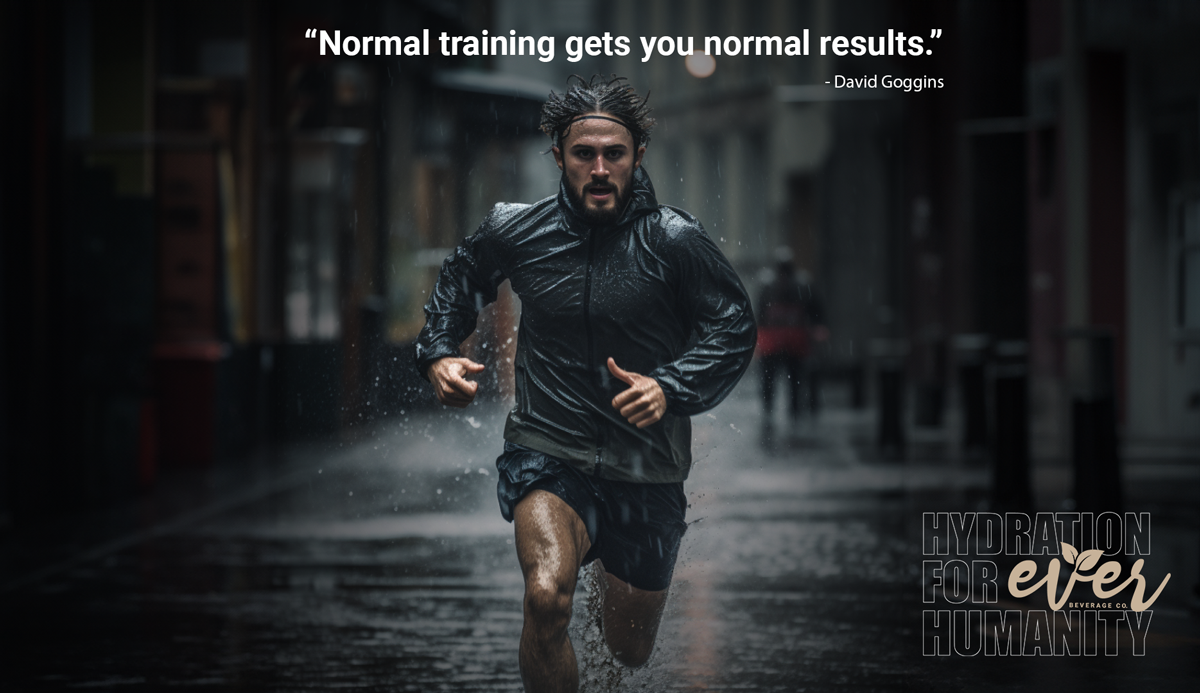
The keys to victory for extreme sport and endurance athletes are an intersection of mental resilience, a strategic mindset, and optimal nutrition. Whether you’re training for a marathon or playing sports, you want to ensure your body is in optimal condition. Balancing nutrition and performance in extreme sports is more an art than a science.
In this post, we look at the main considerations you need to make with regards to nutrition for extreme sport and endurance athletes.
Macro and Micro Nutrients: Fuel Your Body Right
Macro Nutrients are the powerhouse nutrients that provide the bulk of the energy needed for endurance activities. Carbohydrates are your primary source of fuel, especially during long-distance efforts. If you’re looking for sustained energy without spikes and crashes in blood sugar levels, then you’ll want to for complex carbs such as whole grains, fruits, and vegetables. Having a mix of proteins and healthy fats will support muscle repair and keep you feeling satisfied. Lean proteins like chicken, fish, and legumes are excellent choices as well, while sources of healthy fats such as avocados, nuts, and olive oil provide essential fatty acids and help absorb fat-soluble vitamins.
Micro Nutrients are those tiny but mighty vitamins and minerals that play crucial roles in supporting overall health and performance. Iron is especially important for endurance athletes, as it helps transport oxygen to your muscles and tissues. Incorporate iron-rich foods such as lean meats, beans, spinach, and fortified cereals into your diet to prevent fatigue and maintain optimal energy levels. Calcium and magnesium are also key players, supporting bone health and muscle function. Dairy products, leafy greens, nuts, and seeds are excellent sources of these essential minerals.
Hydration: Stay Cool, Stay Hydrated
Hydration is absolutely essential for endurance athletes, as even mild dehydration can impair performance and increase the risk of heat-related illnesses. Aim to drink plenty of fluids throughout the day, not just during workouts or races. Water should be your go-to hydration choice, but for longer efforts, consider incorporating electrolyte-rich beverages such as coconut water or sports drinks to help replace lost fluids and maintain electrolyte balance.
During exercise, it’s essential to drink early and often, rather than waiting until you feel thirsty. Sip on fluids regularly, aiming to consume around 16-20 ounces of water or sports drink per hour of exercise, depending on factors like temperature and sweat rate. Pay attention to your urine color – pale yellow to clear urine is a good indicator of adequate hydration, while dark yellow urine may signal dehydration.

Electrolytes and Endurance Performance
During endurance activities, the body sweats as a cooling mechanism. Sweat contains electrolytes, predominantly sodium and chloride, which are lost as we perspire. The more an athlete sweats, the more electrolytes are depleted from the body. So for athletes engaged in endurance sports, maintaining optimal hydration levels is critical.
Electrolytes, integral to this balance, play a pivotal role. They regulate fluid distribution within the body, ensuring cells receive adequate hydration for optimal function. Imbalances in electrolytes, particularly sodium and potassium, can disrupt your body’s equilibrium, impacting performance and endurance.
Electrolyte imbalance during exercise can have profound effects on an athlete’s performance. Insufficient electrolytes can lead to:
- Muscle Cramps: Resulting from imbalances affecting muscle contractions.
- Fatigue and Weakness: Reduced electrolytes can hinder energy production.
- Dehydration: Electrolyte loss coupled with fluid loss can lead to dehydration, impacting endurance and stamina.
Supplements: Enhance Your Performance
While a well-balanced diet should always be your primary source of nutrients, supplements can be a helpful addition to support your athletic endeavors. Electrolyte tablets or powders can help replace sodium, potassium, and other electrolytes lost through sweat during prolonged exercise. Energy gels or chews can provide a quick source of carbohydrates for immediate energy during long workouts or races. Protein powders can be convenient for post-workout recovery, especially if you’re unable to consume a whole-food meal immediately afterward.
However, it’s important to remember that supplements are just that – supplements. They should never replace real, whole foods in your diet. Always choose high-quality products from reputable brands, and consult with a healthcare professional or registered dietitian before adding any new supplements to your regimen, especially if you have underlying health conditions or are taking medications.

Nutrition Plan: Fuel Your Success
Creating a solid nutrition plan is key to fueling your success as an endurance athlete. Start by calculating your individual caloric needs based on factors like age, gender, weight, activity level, and training intensity. Aim to consume a balanced mix of macronutrients – carbohydrates, proteins, and fats – throughout the day to support your energy needs and promote optimal recovery.
Prioritize pre-workout nutrition by consuming a mix of easily digestible carbohydrates and a small amount of protein to top off your glycogen stores and provide sustained energy. Examples include a banana with nut butter, Greek yogurt with fruit, or a small bowl of oatmeal with berries.
During longer workouts or races, aim to consume around 30-60 grams of carbohydrates per hour to maintain energy levels and delay fatigue. Portable, easily digestible options like energy gels, chews, or sports drinks are ideal for on-the-go fueling.
Post-workout nutrition is crucial for supporting muscle repair and replenishing glycogen stores. Aim to consume a mix of carbohydrates and protein within 30 minutes to an hour after exercise to kickstart the recovery process. Options include a protein shake with fruit, chocolate milk, or a turkey sandwich on whole-grain bread.
Don’t forget to listen to your body and adjust your nutrition plan based on factors like training volume, intensity, and individual preferences. Experiment with different foods and fueling strategies during training to find what works best for you. And always prioritize quality sleep and stress management, as these factors play a crucial role in recovery and overall performance.
With the right nutrition plan in place, you’ll be well-equipped to tackle your next endurance challenge and reach new heights of performance. So fuel up, hydrate well, and go crush those goals!
Example of a 1 Week Nutrition Plan for Extreme Sport and Endurance Athletes
Day 1
Breakfast:
- Overnight oats made with rolled oats, almond milk, chia seeds, sliced banana, and a dollop of Greek yogurt
- A side of mixed berries
- A glass of water or herbal tea
Lunch:
- Quinoa salad with mixed greens, cherry tomatoes, cucumber, bell peppers, chickpeas, and grilled chicken
- Balsamic vinaigrette dressing
- An apple or orange for dessert
- Water with lemon slices
Snack:
- Whole grain crackers with hummus
- Sliced carrots and celery sticks
- A handful of almonds
- Water or herbal tea
Dinner:
- Grilled salmon
- Steamed brown rice
- Roasted vegetables (such as broccoli, cauliflower, and carrots)
- A side salad with mixed greens, avocado, and vinaigrette dressing
- Water or herbal tea
Day 2
Breakfast:
- Whole wheat toast with avocado
- Scrambled eggs
- Sautéed spinach and cherry tomatoes
- A glass of orange juice or water
Lunch:
- Turkey and avocado wrap with whole wheat tortilla
- Mixed green salad with chickpeas, bell peppers, cucumber, and vinaigrette dressing
- A handful of grapes
- Water with lemon slices
Snack:
- Greek yogurt with honey and granola
- Sliced kiwi
- Water or herbal tea
Dinner:
- Whole wheat pasta with marinara sauce
- Grilled chicken breast
- Steamed broccoli
- A side of garlic bread
- Water or herbal tea
Day 3
Breakfast:
- Smoothie made with spinach, banana, frozen berries, Greek yogurt, and almond milk
- Whole grain toast with almond butter
- A glass of water or herbal tea
Lunch:
- Quinoa and black bean salad with corn, cherry tomatoes, red onion, and cilantro
- Sliced mango
- Water with lemon slices
Snack:
- Cottage cheese with pineapple chunks
- Whole grain crackers
- Water or herbal tea
Dinner:
- Grilled shrimp skewers
- Quinoa pilaf with roasted vegetables
- Side salad with mixed greens, cherry tomatoes, and vinaigrette dressing
- Water or herbal tea
Day 4
Breakfast:
- Whole grain pancakes topped with Greek yogurt and mixed berries
- Turkey bacon
- A glass of orange juice or water
Lunch:
- Spinach and feta salad with cherry tomatoes, cucumber, olives, and balsamic vinaigrette dressing
- Whole wheat pita bread
- Water with lemon slices
Snack:
- Apple slices with peanut butter
- Trail mix (nuts, seeds, and dried fruit)
- Water or herbal tea
Dinner:
- Baked chicken breast
- Quinoa and vegetable stir-fry
- Steamed edamame
- Water or herbal tea
Day 5
Breakfast:
- Veggie omelette with mushrooms, bell peppers, onions, and spinach
- Whole grain toast with avocado
- A glass of orange juice or water
Lunch:
- Whole wheat wrap with hummus, grilled vegetables, and feta cheese
- Side of sliced watermelon
- Water with lemon slices
Snack:
- Cottage cheese with sliced peaches
- Whole grain crackers
- Water or herbal tea
Dinner:
- Grilled tofu
- Brown rice
- Steamed asparagus
- A side salad with mixed greens, cherry tomatoes, and vinaigrette dressing
- Water or herbal tea
Day 6
Breakfast:
- Protein smoothie made with banana, spinach, almond milk, protein powder, and a tablespoon of almond butter
- Whole grain toast with jam
- A glass of water or herbal tea
Lunch:
- Lentil soup with whole wheat bread
- Side salad with mixed greens, cucumber, and vinaigrette dressing
- Sliced oranges
- Water with lemon slices
Snack:
- Greek yogurt with mixed nuts and honey
- Sliced strawberries
- Water or herbal tea
Dinner:
- Baked salmon
- Quinoa and roasted vegetable salad
- Steamed green beans
- Water or herbal tea
Day 7
Breakfast:
- Breakfast burrito with scrambled eggs, black beans, avocado, and salsa wrapped in a whole wheat tortilla
- A side of mixed fruit
- A glass of orange juice or water
Lunch:
- Whole grain pasta salad with cherry tomatoes, cucumbers, olives, feta cheese, and vinaigrette dressing
- Sliced mango
- Water with lemon slices
Snack:
- Apple slices with almond butter
- Trail mix (nuts, seeds, and dried fruit)
- Water or herbal tea
Dinner:
- Grilled chicken breast
- Quinoa and vegetable stir-fry
- Steamed broccoli
- Water or herbal tea
Feel free to adjust portion sizes and ingredients based on your individual calorie needs, training intensity, and dietary preferences. And remember to stay hydrated throughout the day by drinking water, Ever, or herbal tea regularly.
Happy fueling!




